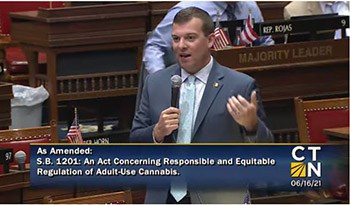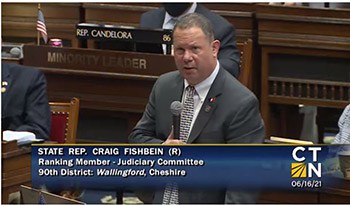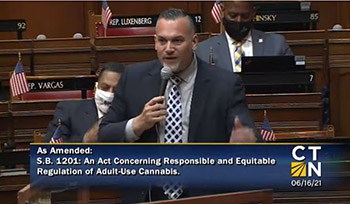<![CDATA[
DETROIT and PORTLAND, Ore., June 23, 2021 /PRNewswire/PRESS RELEASE — Precision Extraction Solutions and Cascade Sciences today announced that they have entered into a definitive merger agreement to create Sinclair Scientific, forming the largest cannabis and hemp extraction equipment and services company in the world with a large portfolio of technological offerings.
Strategic Rationale and Customer Benefits
The merger of Precision and Cascade, which is subject to final customary approvals and conditions, marks the first major consolidation in the cannabis extraction equipment and life sciences space. The combined Company, as Sinclair Scientific, intends to add more brands to its robust portfolio, including highly innovative and disruptive technologies in furtherance of its growth and to maintain its position as the world’s premier purveyor of the most innovative equipment, robust technology, and unparalleled customer service in the cannabis extraction and life sciences industries.
- Global Brand Portfolio Powerhouse: The combined Company’s complementary brand portfolio presents a substantial opportunity for synergies, which will result in increased investments in marketing, innovation, and geographic expansion.
- Industry Leading Scale: The Agreement brings together two leading operators with combined sales and support teams driving in excess of $100 million in estimated gross revenue.
- Extensive Reach Across the U.S.: The newly formed entity will have offices, warehousing and production facilities throughout the United States including California, Colorado, Michigan, New Jersey, and Oregon.
- Potential for Robust Growth Across the Value Chain: The combined Company will have wide-ranging products and services needed to provide its customers with total, fully integrated solutions that span pre-to-post extraction and testing.
- Experienced Industry Leaders: The united management team has combined several decades of proven growth strategy execution to establish one of the most experienced teams in the extraction equipment and services industry, creating the preeminent cannabis and hemp extraction company with global reach.
Management Commentary
"This is a major milestone in the cannabis extraction equipment and life sciences space and we are thrilled about the unique opportunities this merger will create for our customers, as well as our employees, business partners, and shareholders," said Marc Beginin, CEO of Precision Extraction Solutions. "Our combined company will have the most respected, recognized, and storied brands in the global cannabis extraction industry, and together we will create even brighter futures. This combination offers significant value to our stakeholders in a company firmly positioned for exponential growth."
Lee Kearney, CEO of Cascade Sciences, added, "Through merging Precision and Cascade, we are creating an unmatched platform for both U.S. and international growth. Our combined brands and businesses mean increased scale, solidifying our position as the world’s premier provider of the most innovative equipment, robust technology, and unparalleled customer service in the extraction industries. We greatly admire the business that the Precision team has built, and we are excited to work with them to integrate our two companies and execute on the attractive growth opportunities ahead."
Management and Governance
The Board of Directors of the Company will consist of five members, including two appointed by Precision, two appointed by Cascade, and one mutually approved outsider.
In support of building Sinclair Scientific into the most professionally managed extraction equipment and services provider, the CEOs of both Precision and Cascade have agreed to step down from their management positions. Beginin and Kearney have each taken seats as directors on the newly formed board of Sinclair Scientific, providing counsel and guidance to Sinclair’s leadership and supporting the ongoing successful execution of the Company’s long-term strategic plan.
The first act of Sinclair’s board was to unanimously appoint Doug Dowd as the Chief Executive Officer of Sinclair Scientific.
"I am delighted to play a part in bringing these powerhouse brands together under one roof and am honored to work alongside their amazing teams to deliver on Sinclair’s mission of constant improvement and innovation," said Dowd. "I look forward to building on Precision’s and Cascade’s strong market positions as the leading providers of extraction equipment and services in North America, expanding our solution offering for our clients, and providing the best career experiences for our team members."
Mr. Dowd brings more than 35 years of executive leadership experience with some of the largest life sciences companies in the world (including Thermo Fisher and Avantor Sciences) and a proven track record of management expertise and operational results. Most recently, Mr. Dowd served as president of Ricca Chemical Company, a leading manufacturer of analytical solutions and standards in North America. During his tenure at Ricca, the company experienced revenue growth at 3X the market average, with consistent improvement in operational efficiencies, employee engagement and customer satisfaction. While at Ricca he developed business relationships with leading companies in the cannabis and hemp market to provide world class manufacturing and logistic services.
]]>












